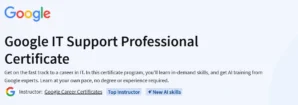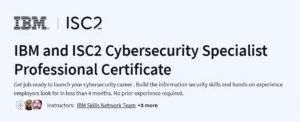Python Scripting Certification Training
A focused, project-driven Python scripting course that equips you to automate file operations, data processing, and scheduling with confidence.
What will you learn in Python Scripting Certification Training
- Automate routine tasks using Python scripts and the standard library
- Work with files and directories: reading, writing, and path manipulations
- Parse and process data formats (CSV, JSON, XML) for batch operations
- Interact with web resources via HTTP requests and HTML/XML parsing
- Schedule and package scripts for cross-platform deployment
Program Overview
Module 1: Python Scripting Foundations
⏳ 1 week
Topics: Script vs. module, shebang and execution permissions, virtual environments
Hands-on: Write and execute your first “hello world” script and package it as a module
Module 2: File & Directory Automation
⏳ 1 week
Topics:
osandpathlibfor traversal,shutilfor copy/move, glob patternsHands-on: Build a script to organize files by extension into folders
Module 3: Data Parsing & Transformation
⏳ 1 week
Topics: CSV reader/writer, JSON serialization, XML parsing with
ElementTreeHands-on: Aggregate and transform a set of CSV files into a consolidated JSON report
Module 4: Web Interaction & APIs
⏳ 1 week
Topics:
requestsfor HTTP, error handling, scraping withBeautifulSoupHands-on: Fetch data from a public REST API and parse HTML tables from a webpage
Module 5: Scheduling & Automation Workflows
⏳ 1 week
Topics: Cron jobs vs. Windows Task Scheduler,
scheduleandAPSchedulerlibrariesHands-on: Create a daily data-backup script triggered automatically at a set time
Module 6: Packaging & Distribution
⏳ 1 week
Topics:
setup.pyandpyproject.toml, entry points, creating executables with PyInstallerHands-on: Package your automation into a command-line tool installable via
pip
Module 7: Debugging & Logging
⏳ 1 week
Topics:
loggingmodule configuration, exception tracing, interactive debugging withpdbHands-on: Enhance an existing script with robust logging and step-through debugging
Module 8: Capstone Project – End-to-End Automator
⏳ 1 week
Topics: Project scoping, modular script architecture, unit testing basics
Hands-on: Build, test, and deploy a complete automation pipeline—for example, an ETL script that ingests, transforms, and reports on batch data
Get certificate
Job Outlook
- Python scripting skills are in demand for roles such as Automation Engineer, DevOps Engineer, and Data Engineer
- Automation reduces manual effort across IT, data analysis, and system administration—salaries range $75,000–$120,000+
- Mastery of scripting accelerates productivity and reliability in DevOps pipelines and data workflows
- Focused modules that directly translate to everyday automation scenarios
- Strong capstone tying together parsing, scheduling, and packaging skills
- Limited coverage of advanced concurrency (asyncio/multiprocessing)
Specification: Python Scripting Certification Training
|
FAQs
- No prior experience is strictly required; the course starts with Python basics.
- It covers fundamental concepts like variables, loops, and functions.
- Step-by-step examples help beginners understand scripting logic.
- Prior exposure to any programming language can accelerate learning but is optional.
- By the end, learners can write functional Python scripts for real-world tasks.
- Yes, Python scripting skills taught in this course can automate tasks like file handling, data entry, or report generation.
- Learners gain knowledge of libraries and modules to interact with files, APIs, and databases.
- Basic automation workflows are included through practical exercises.
- More complex automation may require integrating third-party Python packages.
- These skills save time and improve efficiency in personal and professional projects.
- Yes, the course introduces basic data handling using lists, dictionaries, and CSV/JSON files.
- Learners can read, write, and manipulate data efficiently.
- Understanding Python data structures helps with analytics and reporting tasks.
- More advanced data science or visualization topics may require additional training.
- These skills provide a foundation for data-driven Python applications.
- Yes, the course teaches foundational programming concepts necessary for building small applications.
- Learners practice writing modular code using functions and simple classes.
- Practical exercises include script-based utilities and basic console applications.
- GUI-based applications or large-scale projects may require further learning.
- By the end, learners can create functional scripts and basic Python tools.
- Yes, the course covers standard Python libraries for tasks like file handling, date/time, and data manipulation.
- Learners understand how to import and use modules effectively in scripts.
- Knowledge of libraries helps extend Python functionality for real-world applications.
- Third-party libraries for advanced tasks can be explored after completing the course.
- Mastery of libraries improves efficiency and reduces manual coding effort.





